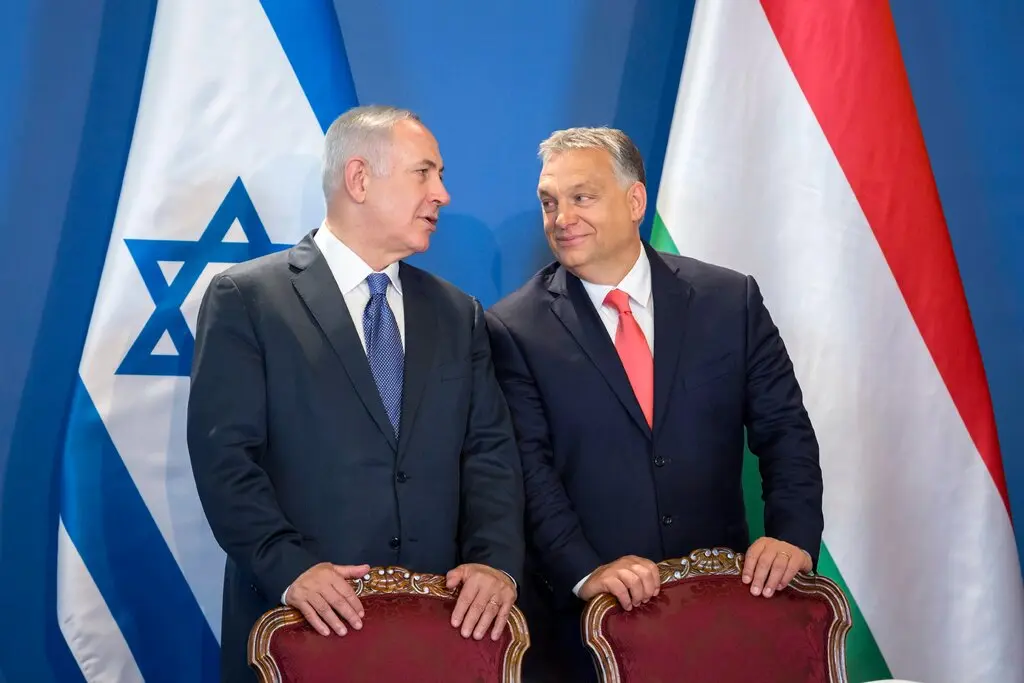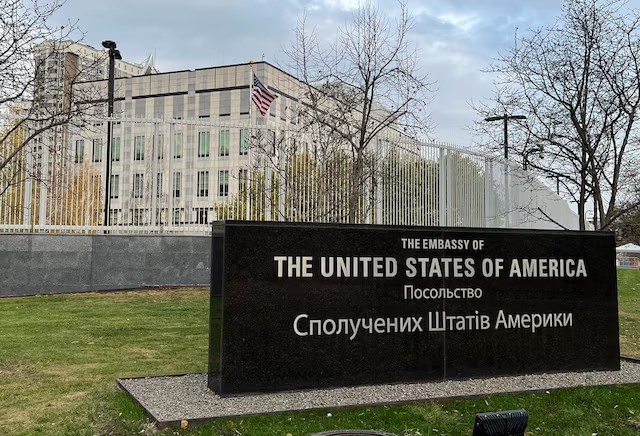Orban Invites Netanyahu to Hungary, Defying I.C.C. Arrest Warrant

Hungarian Prime Minister Viktor Orbán has extended a controversial invitation to Israeli Prime Minister Benjamin Netanyahu, despite an arrest warrant issued by the International Criminal Court (I.C.C.) for Netanyahu.
This move has drawn sharp criticism from various international actors and raised questions about Hungary’s position on international law and its relationship with Israel.
The invitation was made public ahead of Netanyahu’s planned visit to Budapest, where he is expected to meet with Orbán and other Hungarian officials.
The visit is seen as a show of solidarity between the two leaders, who have cultivated a close relationship in recent years.
However, the timing of the invitation is causing significant diplomatic tensions, as Netanyahu is facing serious legal challenges related to his actions during the Israeli-Palestinian conflict.
Background on the I.C.C. Arrest Warrant
The I.C.C. issued an arrest warrant for Netanyahu as part of an investigation into alleged war crimes committed during the 2014 Gaza conflict.
The court, based in The Hague, has been looking into allegations that Israeli forces intentionally targeted civilian infrastructure and caused unnecessary harm to the Palestinian population.
The investigation is part of a broader probe into Israel’s military actions, which have been accused of violating international humanitarian law.
While the I.C.C. is a respected international body, it lacks the enforcement mechanisms to compel countries to arrest individuals subject to its warrants. As a result, some nations, including Israel, have refused to recognize the I.C.C.’s jurisdiction or act on its requests.
Netanyahu has denied all accusations of wrongdoing, stating that Israel’s military operations were legitimate responses to security threats posed by Hamas and other militant groups in Gaza.
Despite the I.C.C.’s investigation and the arrest warrant, Netanyahu remains in power in Israel. His government has pushed back against the I.C.C.’s involvement, claiming that the court’s jurisdiction does not extend to actions taken in Israeli-occupied territories, such as Gaza and the West Bank.
Hungary’s Position on International Law
Hungary’s decision to invite Netanyahu to Budapest despite the I.C.C. arrest warrant has raised alarms among international human rights organizations and European Union (EU) officials.
Critics argue that Orbán’s actions flout the principles of international law and demonstrate Hungary’s growing disregard for the rulings of global institutions.
Orbán, who has been in power since 2010, has frequently clashed with the EU over issues related to democracy, the rule of law, and human rights. Hungary has faced criticism for its handling of political opposition, media freedoms, and judicial independence.
Orbán’s government has also been accused of undermining EU values by aligning itself with more authoritarian regimes, including those in Russia and China.
By inviting Netanyahu, Orbán is once again challenging the authority of the I.C.C. and its ability to enforce international justice. This is not the first time Hungary has taken actions that have drawn ire from international institutions.
Hungary has also expressed its opposition to the EU’s stance on issues such as migration, and Orbán’s government has been a vocal critic of the EU’s foreign policy approach.
The invitation to Netanyahu is being seen as part of Orbán’s broader strategy to align Hungary with Israel and strengthen bilateral ties.
In recent years, Orbán and Netanyahu have forged a strong relationship, particularly around issues of national security, trade, and diplomacy.
Orbán has publicly praised Netanyahu’s leadership and policies, and the two have often found common ground on issues related to immigration, nationalism, and international relations.
The Political Implications for Hungary
Orbán’s invitation to Netanyahu also highlights Hungary’s growing distance from the European Union and its increasing alignment with more nationalist and populist governments.
Orbán has become known for his “illiberal” politics, which emphasize the preservation of national sovereignty and cultural identity at the expense of EU integration and international cooperation.
Hungary’s defiance of the I.C.C. arrest warrant could further strain its relationship with the EU, which has repeatedly called for respect for international law and human rights standards.
Although Hungary is a member of the EU, Orbán has consistently challenged Brussels on key issues and has sought to build stronger ties with countries outside the EU, including Israel.
While Hungary’s government may view its relationship with Netanyahu as a positive diplomatic move, it is likely to face criticism from human rights organizations and Western allies who are already concerned about the erosion of democratic norms in Hungary.
The I.C.C. has also expressed disappointment with Hungary’s actions, as it undermines the court’s efforts to hold individuals accountable for alleged war crimes and crimes against humanity.
The Reaction to the Invitation
The reaction to Orbán’s invitation has been swift and outspoken. Several EU officials have condemned the decision, stressing the importance of upholding international law and the authority of the I.C.C.
Kati Piri, a Member of the European Parliament from the Netherlands, described Hungary’s actions as “a clear violation of international justice” and urged the EU to take appropriate measures against Hungary for its disregard of the I.C.C.’s authority.
Human rights organizations, including Amnesty International and Human Rights Watch, have also criticized Hungary for giving a platform to Netanyahu while the I.C.C. is investigating war crimes allegations.
These organizations have called on Hungary to respect the principles of international law and uphold its commitments to global justice.
The decision has also sparked backlash from Palestinians and their supporters, who have accused Netanyahu of being responsible for war crimes during Israel’s military operations in Gaza.
Palestinian officials have called the invitation “a disgrace” and have urged the international community to hold Israel accountable for its actions.
Hungary’s Shifting Diplomatic Landscape
Hungary’s invitation to Israeli Prime Minister Benjamin Netanyahu, despite the I.C.C. arrest warrant, marks a significant moment in the country’s foreign policy.
Orbán’s government is once again challenging the authority of international institutions, particularly the I.C.C., and aligning itself more closely with Israel.
The decision is likely to have both diplomatic and political repercussions, further isolating Hungary from EU leaders and human rights groups.
As Hungary continues to chart its course in international relations, Orbán’s close ties with Netanyahu could signal a shift towards stronger cooperation with Israel and other non-EU nations.
However, the growing tensions with the EU and the disregard for international law could have long-term consequences for Hungary’s standing within the international community.
With the I.C.C. arrest warrant hanging over Netanyahu’s visit, the situation remains fluid, and it remains to be seen how the European Union, human rights organizations, and other global actors will respond to Hungary’s defiance.
In any case, this development highlights the continued friction between national sovereignty, international law, and the complex geopolitics of the 21st century.






